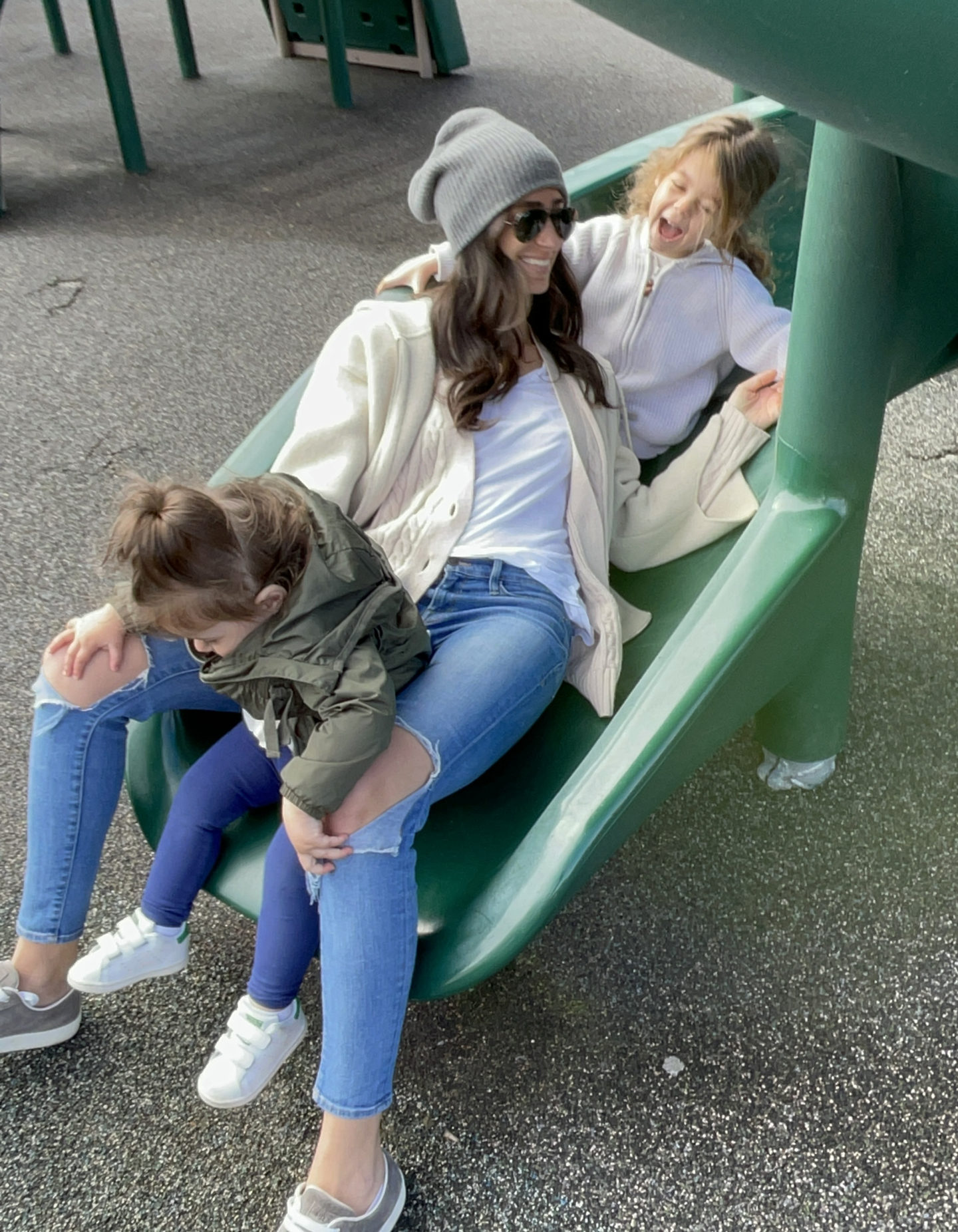I was 21 weeks along with twins when I found out something was very wrong. One of my twins wasn’t going to make it. And there was a chance she could take her healthy unborn sister with her.
I had done hard things in my life, but nothing prepared me for this. The helplessness I felt seemed to ache through every pore. What happened? Is it my fault? Why did my body do this to her? To me? All of my many doctors repeated the same mantra over and over: there’s nothing you did wrong. There’s nothing could have done. This is not your fault. This is not your fault. This is not your fault.
I struggled to believe them.
I got through the next few months by talking to pretty much everyone and anyone I came across – this is what felt best to me as I grappled with my grief. When I first found out something was wrong, I talked about that. When I learned that I couldn’t get certain medically appropriate care because of the laws in my state, I talked about THAT. When I discovered that over thirty thousand infants pass away late in pregnancy each year in the US, I talked about that. And when I finally gave birth via c-section at 32 weeks, I talked about that.
Our healthy twin, Lily, is now home and healthy after a stay at “Camp NICU.” Her twin, Iris, kept her sister safe until the end, but was born with a body that couldn’t sustain life on land. The nurses wrapped her in a soft blanket and gave her medication to make sure she wouldn’t feel any pain. They handed her to me looking as if she was in a peaceful sleep. For the next few hours my husband and I passed her back and forth – singing, talking, crying, and filling her with love, even after the doctors couldn’t find a heartbeat anymore. This summer, we sent her back to the water, scattering ashes that fit in the palm of one hand into welcoming ocean waves.
Even after all we’ve been through, we consider ourselves lucky. Lucky we brought home one healthy baby. Lucky we have good health insurance. Lucky we had access to good doctors who listened to us. Lucky we had the blessing of time to mentally and practically prepare to say goodbye. And lucky to have the opportunity to share what we learned with you, dear reader, so that when someone you care about experiences the loss of an infant, you know what to do.
Here are 3 things that helped and 3 things that didn’t after we lost our baby late in pregnancy.
DO follow cues. Some people prefer to grieve privately, and some process their grief more publicly. An easy way to assess is, how did you find out about the loss to begin with? Was it from a friend or colleague, a social media post, or from that person directly? Take their communication as a cue to what and how much engagement they are looking for – and know that it can change at any time, and that’s ok.
DON’T check in with questions. Sending a text like “sending love to you & baby” shows support while also giving the option to respond (or not). Leading with a question like “how are you doing?” says that you expect a response, which can be a burden for the recipient if they aren’t ready or don’t want to talk.
DO set up community support: right after our loss, a wise neighbor told me, “if you don’t let me help you, you’re going to come home to 20 lasagnas on your doorstep”. Setting up a meal train, Go Fund Me, Caring Bridge, memorial fund, Instacart fund, and/or care train (for non-food gifts) is a huge help not only to the recipient, but to their whole community of friends, neighbors, and colleagues who desperately want to help and don’t know how.
DON’T let them grieve alone. Talking regularly to someone trained in grief, like a therapist or a chaplain, can be a game-changer for healing – it gives them someone to take their big feelings to who isn’t their spouse or other immediate family. If there is not someone like this in the picture already, find one. Do some research, make some phone calls, and suggest one person (not more) with a name, email and a phone number. Make sure they are accepting new clients. If money is a factor, go through local hospitals or churches to find low-cost or free professional support. Make it as simple as one email or phone call to get started – this is the hardest step.
DON’T give gifts that are specific to the child lost. People memorialize children they’ve lost in highly personal ways. I chose to get a custom necklace made with three charms for each of my daughters, and I’ve been very intentional about which of her items I keep in sight and out of sight in my home, so that I can maintain at least some control over when I grieve. Receiving an unexpected gift that is too specific to the child’s name or gender can be triggering instead of comforting. Instead, give gifts that comfort or soothe the parent or their other children, or better yet, contribute to (or start) a community support activity that’s been sanctioned by the recipient, like the ones listed above.
DO continue support over time. Grief unfortunately doesn’t magically disappear when the last lasagna is defrosted. For a co-worker, this is especially true. Give plentiful grace, patience, and space no matter how many months have passed. Remember that a career is a marathon, and everyone’s bound to have a rough mile or two. But somehow we have to keep going. The time off we get will never be enough, so it’s up to us to take care of each other all the way up and through the next bend in the road.
Losing a baby late in pregnancy is one of the most painful and profound things I’ll hopefully ever experience. But six months on, I’m starting to feel hope, warmth, and light slowly creep back to my heart and body again. Having a generous and patient community that empowered me to receive the support I needed most has helped my healing immensely. In the end, we had meals and groceries covered for weeks, and we raised $1,300 to provide free lodging for hospitalized children’s families. We still have a long journey ahead, and we know grief can be unpredictable. But with the support of our community behind us, we know we’re not alone, and we know that someday, somehow, we’re going to be ok.




